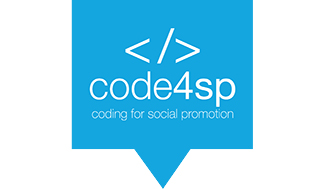An end to complete knowledge
It is said that a dedicated frequent reader could consume 10,000 books in a lifetime. In the 16th century, that would have been just under 7% of all the books in the world. If, for example, a physicist at that time read every printed work that had already been published on his subject, he would have acquired almost complete knowledge. But with each phase of the educational revolution, human knowledge grew exponentially. In the meantime, it is only possible in exceptional cases to acquire 100 per cent of the literature on a subject. And if someone were to read 10,000 books today, that would be only 0.01 per cent of the world's literature.
But if a physicist can no longer be an all-knowing expert in his field, he has two options for defining his qualification and finding his place in the labour market: Either he becomes a specialist for a small subject area with interface competence to adjacent subject areas. Or he becomes a generalist with a broad spectrum of knowledge, at the expense of in-depth knowledge. Regardless of which path the physicist takes: the constant further development of his field will force him to constantly educate himself in his working life as well.
Challenges of the educational landscape
While generalist training is tried and tested, specialist qualifications present new challenges to the education landscape: Learners who want such expert status must focus on one subject area and at the same time acquire the competence to transfer the skills they have learned to other subjects. For this, they need a fast, custom-fit qualification (in terms of content - but more important than ever also in terms of methodology) in order to start their profession quickly and to continue their education in their everyday work. They do not necessarily have to attend vocational schools or universities, which often find it difficult to adapt quickly to the permanent changes in the labour market. Especially in high-demand industries like IT, proof of skills often counts more to companies than a certificate attesting to a wide-ranging academic career.
Ideal learning conditions
Learning something new is always a challenge. How can the best learning results be achieved quickly and sustainably at the same time? This question has occupied scientists and practitioners for decades. One of the best-known studies on learning improvement was conducted by the US educationalist Benjamin Bloom in the 1980s and came to the following conclusion: even a learner of average ability can achieve considerable improvements in performance through so-called "mastery-based learning" and individual tutoring.
Shifting the performance spectrum
Bloom's study involved three learning situations in which the comparison groups were asked to achieve an identical knowledge goal in the same amount of time - analogous to a learning competition in which bronze, silver or gold medals are to be won.
The first group was confronted with a traditional learning situation in which a teacher taught 30 students - with notes on the blackboard, group discussions, homework, etc. The second group was given the same task as the first group. At the end of the month, the 30 learners were tested. The vast majority were assessed by the teacher with a bronze medal, some with a silver medal. Only the best 20 per cent managed a gold medal.
The second group received lessons structured according to the "mastery learning" concept. Here, the teacher first tested each child's prior knowledge and skills. Various measures then helped the pupils to gradually acquire the given content. The results improved noticeably: most of the children received silver medals and more gold medals.
Bloom's experiment went even further: In a third step, the "Mastery Learning" concept was supplemented by individual support. 30 children were individually supported by 30 teachers in achieving their goals. Promptly, the performance improved even more - 90 per cent of the children received gold medals for their exam results. Further research also showed that these children had made progress in cognitive, behavioural and scientific understanding.
Bloom thus found confirmation of the common sense-impression that learners in individual lessons with precisely set tasks and targeted support can achieve a much higher increase in knowledge than in a classical learning situation. Scientifically expressed: on a normal distribution curve, the children's learning ability improved by 2 sigma - a spectacular increase in knowledge.
In the 1980s, however, this placed those responsible for education in a difficult dilemma: it was not feasible, either financially or in terms of personnel, to provide individual attention to all learners. Bloom's research gained a high profile as the "2-sigma dilemma", but drastic changes in the educational landscape failed to materialise.
CodeDoor: Infrastructure for modern learning
Modern qualification processes that take into account the needs of the economy and can resort to individual tutoring would thus mean a real enrichment of the educational landscape. 30 years ago, education experts still formulated such an adaptation to learning needs as utopian wishful thinking - thanks to technological progress, however, this utopia is already a reality today: the non-profit association CodeDoor from Germany combines the two demands for efficient and sustainable learning explained above in one IT tool. Learners can qualify as IT experts in various fields via an innovative platform that creates a tailor-made offer for each user.
The individual learning experience is complemented by the social component: The participants learn and work together online and offline, encourage, correct and motivate each other. Tutors are assigned to the teams, who take on the role of both senior developer and encourager.
With this customised knowledge transfer, CodeDoor supports non-profit organisations worldwide in scaling their educational programmes - so that no one is left behind.






